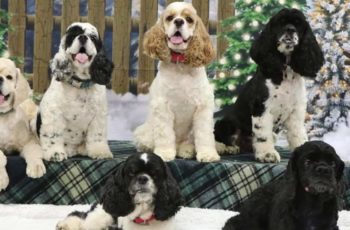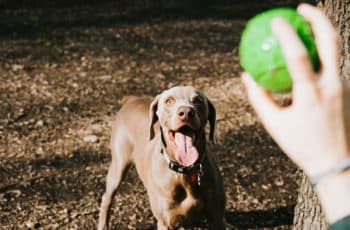This past June, our fourteen-year-old Siberian Husky, Manya, was diagnosed with cancer and given days to a week to live. It is now January, and she is still with us. The reason could be the twelve pills a day cocktail she’s on, or the radical change in her diet, or the extra TLC she’s gotten from me and my wife, Diane. But we think it’s something much more than all of that.
Manya came into our lives as a puppy when we, in our mid-forties, became newlyweds and bought our first home. She was not officially a rescue even though we found her on Craigslist stating that she would be surrendered to a shelter if someone didn’t want her that weekend. I’ll never forget Diane gasping when their eyes first met, “Oh my, look at her!” As all Huskies are, she was extraordinarily beautiful, but there was something more than just looks. Her aura radiated out to us, and it was love at first sight. Several times over the years, people have said, “If your dog was a movie star, she would be Audrey Hepburn.” Exactly. Elegant, svelte, gorgeous, and gentle of spirit.
Having heard that Huskies are notoriously willful, Manya and I immediately immersed ourselves in twice-a-week positive training classes. I read everything I could about dog behavior and psychology and became a devotee of Patricia McConnell’s wisdom pertaining not only to dogs but to life in general. Together we learned to respect each other and even, just once, out-performed the Border Collies in class in a friendly competition of obedience.
As Diane and I started our new life together, Manya was right there with us every moment. The three of us traveled up and down the East Coast twice a year, every year, to see family and friends. Our favorite vacation spot was a beach on the Outer Banks in North Carolina. It certainly was odd seeing a Husky frolicking in the sand in the middle of summer in the South, but she was no ordinary Husky.
GET THE BARK NEWSLETTER IN YOUR INBOX!
Sign up and get the answers to your questions.
She was highly intelligent, mischievous, and instinctively wild. She was curious about everything, always watching us live our lives as if she were learning how to cook, garden, or dance. She loved children, especially babies, but was cautious and tentative around adults. And even though she was once viciously attacked and severely injured by two Rottweilers, she relished the company of other dogs and never showed any fear around them.
Never overly affectionate, Manya stayed close to us but was always just out of physical reach. When we were able to “corner” her and love on her for a bit, she tolerated it just long enough to satisfy our needs, and then her wolf-like independence kicked in, and she was off.
Around the same time as we got Manya’s cancer diagnosis, I finally decided to have both my knees replaced. After thirty years as a professional dancer, my career had gotten the best of me and, after delaying the inevitable for too many years, there was no denying the fact this could no longer wait.
Over the past summer, my mobility deteriorated with surprising speed, as did Manya’s overall health. The sight of the two of us hobbling along on our walks was just plain sad, but it was something that neither of us was willing to give up, not yet. Our twice daily, ninety-minute walks in the woods were now reduced to fifteen minutes around the local parking lot. It was the best either of us could do, and we relished each and every difficult step together.
Fast forward to the present, and I am now two weeks out from surgery and relearning how to walk. Diane is a caregiver to both me and Manya, a difficult dual responsibility that she accepts with grace and compassion. Although I have never said this to anyone, I secretly hoped that Manya would pass before my surgery so that Diane would only have the burden of helping me start anew. But she had different plans.
Now home from the hospital, Manya is constantly close to me, never leaving my bedside except to eat or go outside to relieve herself. Even her short walks with Diane are of little interest to her. We believe she is still with us—staying as long as necessary, giving all she has left—to help me in my recovery.
When I finally get on my feet, and the new phase of my life begins, I know she will have completed her purpose. I wonder which hurdle, which goal, which accomplishment in my recovery will be when she decides her work is done. All I know is that my gain will also come with loss, that my healing will come with a price.


